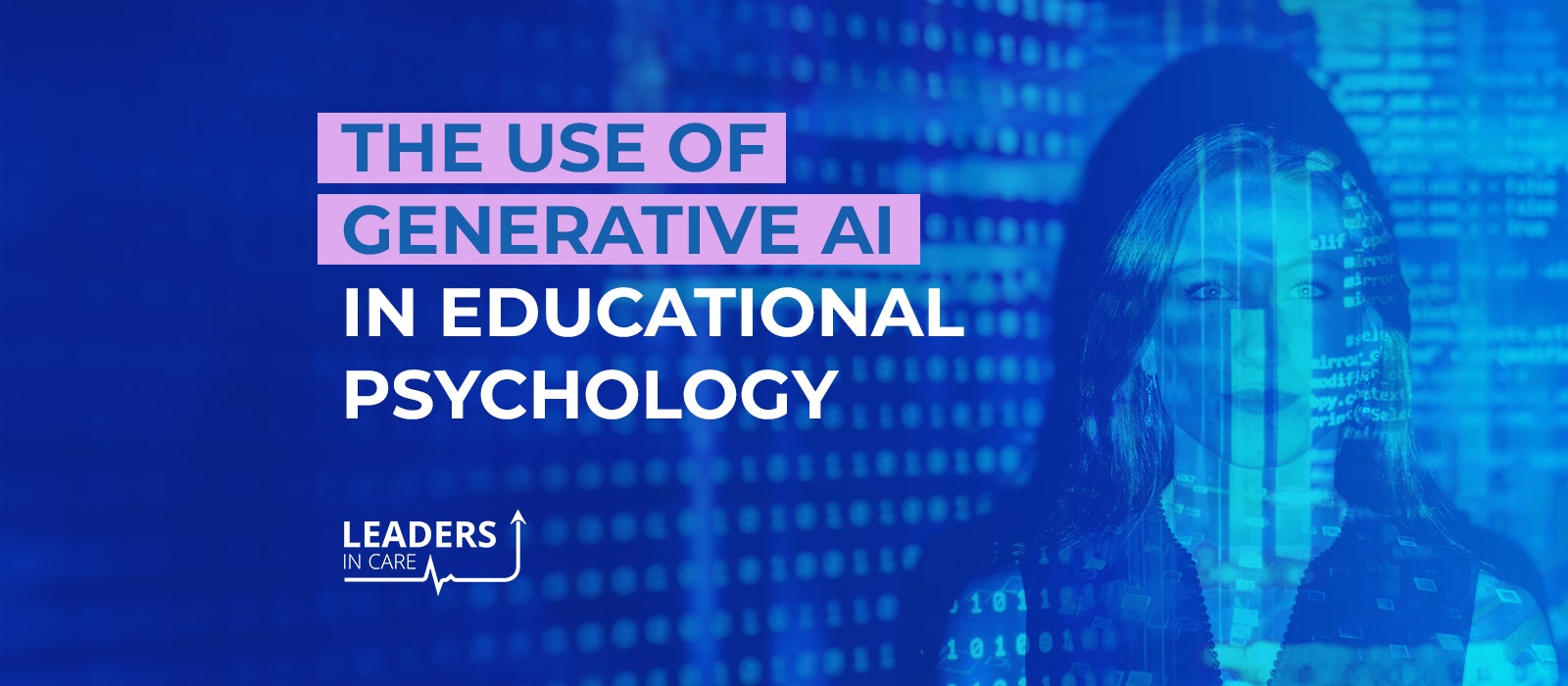A New Chapter for Educational Psychology
Generative AI has evolved rapidly, moving from speculative tech to everyday utility across healthcare, law, education, and beyond. For educational psychology, this isn’t just about innovation, it’s about transformation.
Educational psychologists already face significant systemic pressures: growing caseloads, demand for timely Special Educational Needs and Disabilities (SEND) assessments, and increasing emotional complexity. Generative AI - from platforms like ChatGPT, Claude, and Gemini - offers practical solutions to streamline reporting, enhance reflective practice, and improve access to psychoeducational materials.
But with its promise comes caution. As explored in recent reports by the UK Department for Education and academic studies such as Nature Humanities and Social Sciences Communications, generative AI must be introduced with ethical foresight, cultural sensitivity, and regulatory compliance.
This blog explores the current landscape, practical uses, and responsible integration of generative AI into educational psychology practice.
What Is Generative AI?
Generative AI refers to machine learning models trained on vast datasets that produce original outputs in response to human prompts, including text, code, summaries, or simulated dialogue. Tools like ChatGPT (OpenAI), Gemini (Google), and Claude (Anthropic) are increasingly accessible, prompting widespread exploration in professional settings.
Unlike traditional AI systems, which often rely on rule-based logic or predictive modelling (e.g., flagging behavioural patterns or automating scheduling), generative AI creates new content - mimicking human language or structure - based on what it has learned from data. This shift enables far more dynamic, open-ended applications in practice.
While initially popular in business and software, their application in psychology is growing, especially for tasks such as:
-
Report drafting and formatting
-
Supervision and CPD support
-
Summarising professional notes or webinars
-
Creating tailored psychoeducational materials
-
Supporting multi-agency communication
The British Psychological Society has noted widespread curiosity about generative AI among practitioners, but also highlighted that formal governance and reflective policy frameworks are still in early stages, reinforcing the importance of cautious and informed adoption.
How Educational Psychologists Are Using Generative AI
1. Support for Report Writing
Writing psychological reports is time-intensive and cognitively demanding. Generative AI can offer structural suggestions, rephrase content in plain English, or propose standardised formats. A number of platforms are already offering EP-specific interfaces to support the drafting process.
Still, it's vital to apply professional discretion and avoid over-reliance on template-based outputs.
2. Professional Reflection and CPD
Generative tools like ChatGPT can support continuous professional development. For example, EPs can use AI to summarise a CPD webinar, explore case reflections, or generate supervision prompts. This mirrors the findings from the University of Reading’s 2025 study on professional AI use in learning environments.
3. Psychoeducational Resource Creation
EPs can generate easy-to-understand resources for schools and families, such as factsheets, FAQs, or role-play scripts. Generative AI can tailor content to specific literacy levels or learning needs, though materials should always be reviewed for accuracy and tone.
4. Administrative and Communication Support
Some AI are being adopted for transcribing multi-agency meetings and summarising voice memos. This reduces manual data entry and helps maintain accurate records while freeing EPs for direct practice.
Generative AI also aids in professional communications - for example, helping EPs adjust the tone or complexity of documents for different audiences, a benefit highlighted by the Department for Education's 2024 Generative AI review.
Ethical Considerations and Limitations
While promising, generative AI presents challenges that EPs must consider carefully.
1. Data Privacy and Confidentiality
Entering identifiable information into public AI tools like ChatGPT may breach GDPR. The UK Information Commissioner’s Office (ICO) issued updated guidance in 2024 that reinforces the need for Data Protection Impact Assessments (DPIAs), privacy controls, and institutional governance when deploying AI in public-facing roles.
Use of generative tools must be confined to secure, enterprise-grade platforms that support local data storage and encryption.
2. Bias and Misrepresentation
Generative AI inherits the biases present in its training data. Studies such as “Generative Artificial Intelligence in Teaching and Learning” (2025) warn that AI-generated content can inadvertently reinforce stereotypes, for instance, misrepresenting neurodivergent behaviours or using culturally inappropriate terminology.
This is particularly critical for EPs working with diverse or marginalised populations.
3. Explainability and Professional Accountability
AI decisions are often opaque - a phenomenon known as the “black box” problem. The UK AI Safety Institute urges the use of interpretable AI tools that allow users to see and understand how an outcome was reached.
Psychologists must always be able to justify conclusions drawn in reports or consultations, making transparency non-negotiable.
Looking Forward: The Role of Generative AI in Shaping the Profession
While not a panacea, generative AI can play a valuable supporting role in educational psychology when used ethically and strategically.
Ongoing dialogue is vital. As Psychology Today notes in their 2024 article on generative AI in psychology, the most important question isn’t “Can we use AI?” but “How do we use it responsibly, without compromising human connection?”
The Higher Education Policy Institute’s 2025 Student AI Survey reveals just how deeply generative AI has embedded itself into academic life: 92% of students now report using AI tools, with 88% having used them for assessments - a dramatic rise from 2024.
Empowered, Not Replaced
Generative AI can enhance efficiency, creativity, and access within educational psychology, but only when grounded in the profession’s values: equity, trust, autonomy, and empathy.
It should never replace the human elements of practice, but instead empower EPs to spend more time doing what matters most - listening, observing, understanding, and supporting.
Educational psychologists bring professional judgement AI cannot replicate - including cultural competence, trauma-informed care, and nuanced developmental understanding.
At Leaders in Care, we’re proud to support psychologists navigating this digital frontier - not only through expert recruitment, but also through thought leadership, CPD resources, and ethical discussion.
Want to Learn More? Join Our Upcoming CPD Event
To continue this important conversation, we’re hosting a free CPD-accredited webinar designed specifically for educational psychologists, “Application of AI in Psychological Practice: Opportunities, Ethics, and Impact”, led by Dr Rachael Skews.
🗓 Date: June 24th, 2025
🕔 Time: 5:00 PM
📍 Location: Online
🎓 Includes: CPD certificate, recording, resources, and slides
To help you get even more from the session, we’re also publishing a dedicated series of blogs exploring the evolving role of AI in psychological services:
🔗 Harnessing AI in Educational Psychology: Balancing Innovation with Human Insight
🔗 AI Tools Educational Psychologists Should Know About and Consider Exploring in Practice
🔗 The Ethical Implications of Using AI in Educational Psychology







